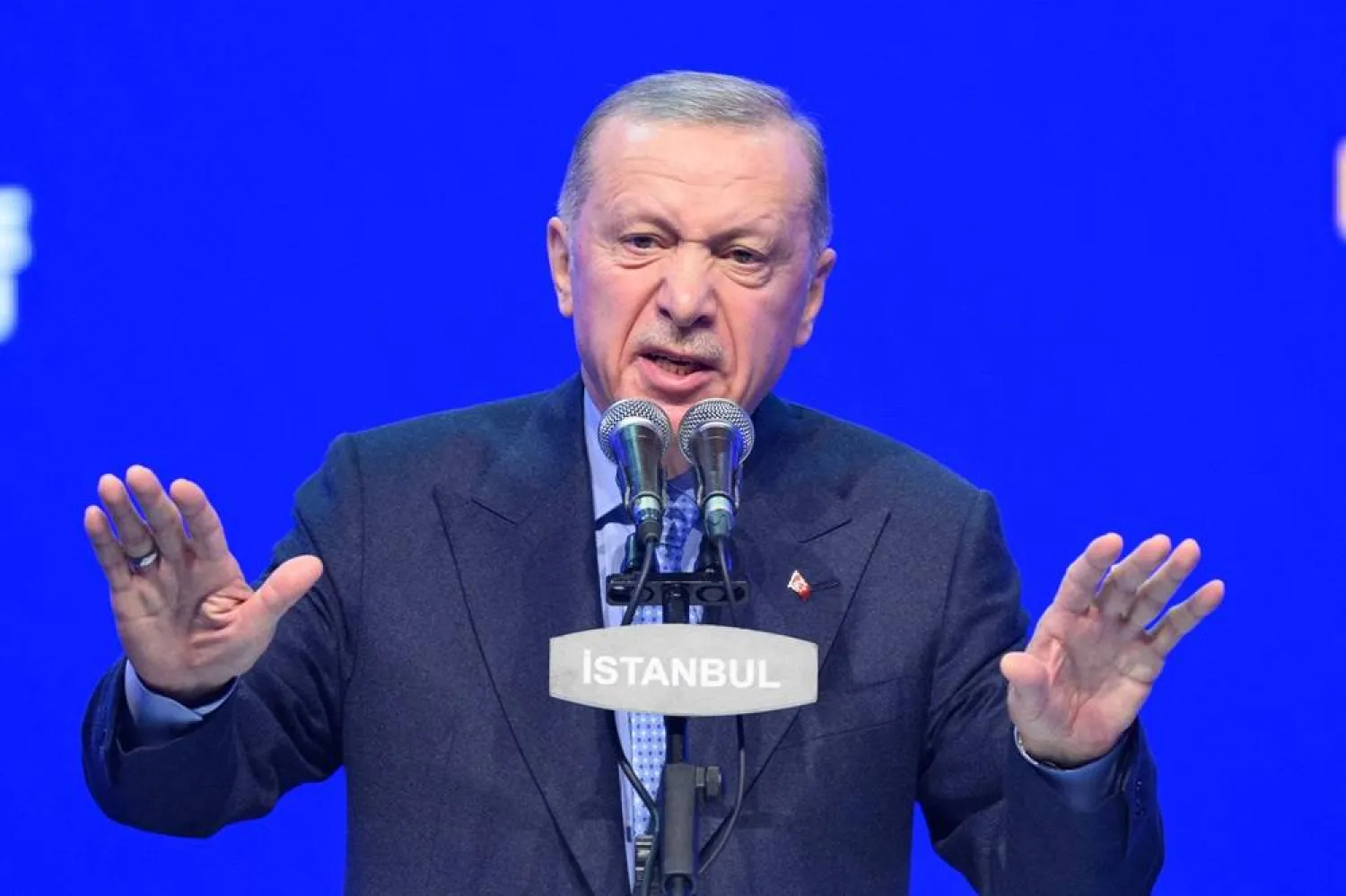Turkish President Recep Tayyip Erdogan vowed on Tuesday to widen military operations against groups linked to Kurdish militants in neighboring Iraq and Syria, days after an attack on a Turkish military base in Iraq killed nine Turkish soldiers.
Turkish warplanes and drones have been carrying out airstrikes on targets in Syria and Iraq believed to be affiliated with the banned Kurdistan Workers’ Party, or PKK, since attackers attempted to infiltrate a military base in northern Iraq’s semi-autonomous Kurdish region on Friday. Five soldiers died in the attack while four others died later of critical injuries.
In a televised address following a Cabinet meeting, Erdogan said Turkish jets had struck a total of 114 targets in Syria and Iraq in operations launched in the last five days.
A further 60 infrastructure and facilities were destroyed in separate operations by Türkiye's intelligence agency, the president added.
Erdogan said Türkiye was determined to eliminate the threat from Kurdish militants “at its source” in Iraq and Syria. It was not clear if Ankara, which has carried out land offensives in the past, is contemplating a new ground operation.
“Our operations will continue until every inch of the mountains in northern Iraq that have become the source of terrorist actions ... are secured,” he said. “In the same way, we will not stop until the terror nests in Syria ... are completely destroyed.”
The Turkish leader continued: “God willing, in the coming months, we will definitely take new steps in this direction, regardless of who says what, what threats they make or what their plans are.”
On Monday, Kurdish led-authorities said Turkish shelling and airstrikes have targeted dozens of infrastructure facilities in northeast Syria over the past days wounding at least 10 people and cutting out electricity and water supplies in wide areas held by the main US-backed group in the war-torn country.
The PKK, which maintains bases in northern Iraq, is considered a terror organization by Türkiye's Western allies, including the United States. Tens of thousands of people have died since the start of the conflict in 1984.
Türkiye also considers Syrian Kurdish groups as terrorist organizations, but the US disagrees with that status and regards them as allies in the fight against the ISIS group in Syria.









